E-Mobility 4 Impact
Piloting sustainable mobility solutions in sub-Saharan Africa

Our E-Mobility 4 Impact program supports innovative e-mobility pilot projects driving the transition towards a sustainable, low-carbon transport sector in sub-Saharan Africa. Our aim is to to gather crucial insights and valuable experience for the continent’s e-mobility ecosystem, to promote growth and development in this area.
Program
Research & Development for e-mobility in East and West Africa
We are convinced that e-mobility can make a significant contribution to achieving global climate goals and drive social and economic development in sub-Saharan Africa. In order to accelerate the transition to an environmentally friendly mobility future, robust insights into successful innovations, business models and user acceptance in the e-mobility sector are crucial.
Our E-Mobility 4 Impact program focuses on building local knowledge and skills in the e-mobility sector in East and West Africa. In close cooperation with social enterprises in Ghana, Nigeria, Uganda, and Tanzania, we are testing solutions to increase the social and environmental impact of electric mobility.
Improving acceptance, accessibility, and affordability
The pilot projects focus on overcoming challenges around acceptability, accessibility, and affordability of electric vehicles, battery technology, and charging/swapping infrastructure. This includes solutions from the energy, the e-waste and recycling, as well as the tech sectors.
Expanding social entrepreneurial skills
Successful, local solutions require skills that put the customer at the center. This improves the local fit of a product and the customer acceptance. The program aims to train local professionals and entrepreneurs in human-centered design and social entrepreneurship. Building these essential skills empowers participants to develop their professional careers or businesses in a more sustainable way.
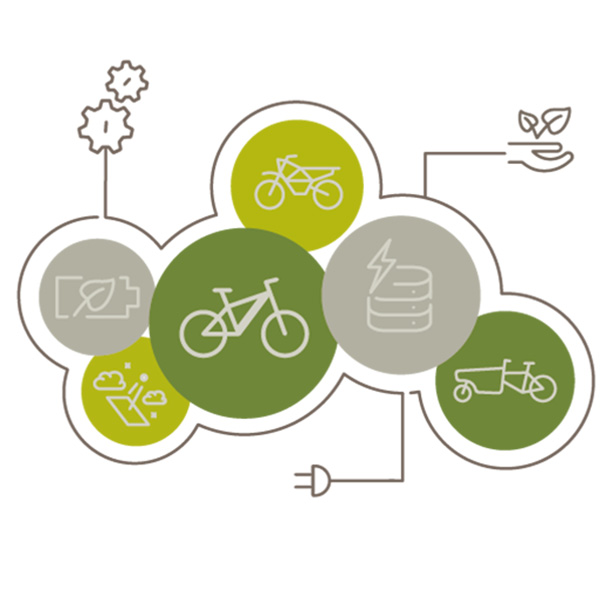
Projects
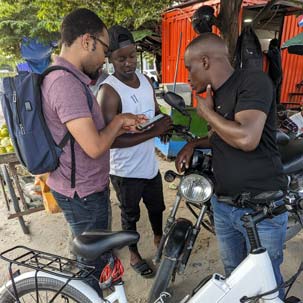
Promoting EV Adoption in Tanzania: Public E-Bike Sharing for last mile deliveries
Duration: 1.10.2024 – 31.12.2025
It is estimated that Tanzania has up to 1 Million 2-wheelers on its roads, (AfEMA Country Report Tanzania 2023), mainly used by Boda riders for delivery. Replacing motorbikes in Dar es Salaam´s last mile delivery sector with electric bicycles successfully could decrease the number of 2-wheelers with internal combustion engines significantly to reduce CO2 emissions. It comes with an opportunity of higher incomes for Boda riders as operational costs of electric bicycles are cheaper due to savings in fuel and maintenance. Introducing ride sharing to the sector could further decrease the number of vehicles on the road through a higher utilization rate.
The aim of the project is to study the acceptance of e-bicycle sharing among Boda riders for last-mile deliveries. The objectives are to identify the key factors affecting the decision of riders to shift to e-mobility and to assess the financial viability of using both a sharing model as well as electric bicycles for such deliveries. FikaChu Company Ltd. is carrying out the study on their platform testing e-bikes for bike sharing.
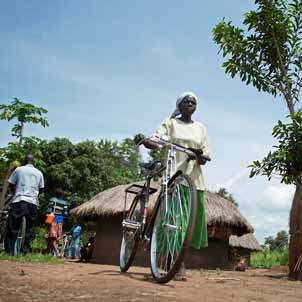
Introducing Electric Bicycles to Smallholder Farmers in Northern Uganda
Duration: 1.10.2024 – 31.12.2025
In peri-urban and rural areas of Uganda, transportation options are limited and often inadequate. Many people rely on walking or using boda-bodas with internal combustion engines. The lack of affordable and reliable transport solutions hinders economic activities and the quality of life, particularly for remote communities like smallholder farmers who need to transport goods to market.
The research introduces 100 electric bicycles to mainly smallholder farmers in Gulu, Northern Uganda, to test the viability of those vehicles in peri-urban and rural areas and to study the impact on the livelihoods of farmers. The objective of the study is to understand the economic, social, and environmental potential of introducing electric bicycles in such setting. Cycle Connect Limited is leading the research piloting the introduction of Ebee´s electric bicycles to their asset financing portfolio to gather insights from their customers.
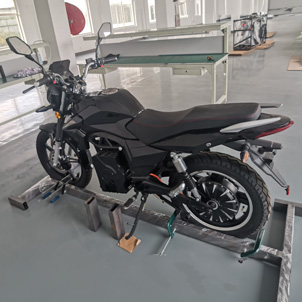
Increasing acceptability of electric motorbikes through local production of e-motorbike components
Duration: 1.10.2024 – 31.12.2025
If the transition towards a low carbon transport sector shall succeed hand in hand with new economic opportunities for Nigeria, local assembly and production plays a major role. This provides a chance for new jobs, and local or regional supply chains. At least local manufacturing for e-mobility comes with some challenges (e.g. costs, quality, skills).
This project examines the feasibility of local assembly of electric motorcycles and the local production of some components. The specific objective of the study is to analyse the quality and durability of the locally produced components for electric motorbikes to substitute imported components with locally produced one. Orbit Electric Automobile Ltd. is conducting the research in their supply chain in Lagos, Nigeria.
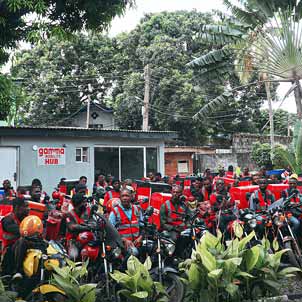
Promoting E-Mobility for last mile delivery in Ghana and Nigeria
Duration: 1.10.2024 – 31.12.2025
Ghana’s and Nigeria’s motorcycle delivery services are essential for last mile delivery but contribute significantly to urban pollution. The transition to electric motorcycles could reduce CO2 emissions in the last mile delivery sector significantly if they are viable alternatives to traditional ICE motorcycles.
The study compares the impact of promoting electric motorcycles in the last-mile delivery sector in Ghana and Nigeria. It evaluates the viability of electric motorcycles by comparing various operational models of last mile delivery platforms, electric motorcycles and internal combustion engine motorbikes, home charging and battery swapping, and by assessing the impact on the overall livelihood of gig workers (e.g. through cost savings). The research will be carried out by Gigmile Technologies Ltd by introducing e-motorbikes to their platform in Lagos, Nigeria, and Accra, Ghana.
Contact
Would you like to find out more or have questions about the current tender?
Project manager E-mobility
Sebastian Gruss
sebastian.gruss@siemens-stiftung.org
Green mobility on the rise
Learn more on the current status in selected countries
In Ghana, the transition towards e-mobility became a national agenda as the transport sector accounts for 47.7% of energy-related emissions. Ghana’s Ministry of Transportation presented Ghana’s Electric Mobility Roadmap (2022-2035) in combination with a national e-mobility policy framework in July 2022. Additionally, the Renewable Energy Master Plan of 2019 targets universal access to energy for all in 2025 (2019: 86%). One of the latest announcement of the government of Ghana sees a drop of import duties on electric vehicles starting in 2024.
According to the World Bank, about half of Ghana’s vehicle fleet is cars (47.3%), followed by buses (37.6%), three-wheelers (9.8%), and two-wheelers (5.3%). Looking at vehicle kilometers traveled (VKT) in 2022, 2- and 3-wheelers account for 44%, followed by cars (38%) and buses (18%).
Nigeria’s Energy Transition Plan (ETP) targets 10% biofuel blends by 2030 and complete adoption of electric vehicles by 2060. The removal of fuel subsidies aims to bolster the electric mobility sector as government and private initiatives work to promote EVs and charging infrastructure for a sustainable future. A transition toward electric mobility could have a huge impact on Nigeria’s and Africa’s carbon footprints as the transport sector accounts for around 24% of total greenhouse gas emissions (GHG) in Nigeria. Nigeria is the 4th biggest GHG emitter in Africa.
The vehicle fleet in Nigeria is quite mixed, though slightly over half is cars (51.8%), followed by buses (26.6%), and two-wheelers (21.7%). While the e-mobility ecosystem is still nascent with 15 players, Nigeria is witnessing a surge in startups across all vehicle segments (World Bank 2022).
In Uganda, motorized transport is responsible for 24% of direct CO2 emissions (from fuel combustion). Road vehicles – including cars, trucks, buses, and two- and three-wheelers – account for nearly three-quarters of transport CO2 emissions. Given that over 90% of Uganda’s electricity is derived from renewable energy sources, the electrification of transport will have a particularly favorable ecological impact. The e-mobility ecosystem, however, is nascent and diverse, but interest in the industry is advancing quickly. The government of Uganda has also acknowledged the potential of e-mobility and promotes the adaption of electric vehicles through all segments (Boda Bodas, buses, cars).
Looking into Uganda’s ICE vehicle fleet, 2- and 3-wheelers account for the biggest share, with a total number of 1,143,000 vehicles (83.6%), followed by 200,000 4-wheelers (14.6%) and 25,000 buses (1.8%). (World Bank 2022)
In March 2023, Tanzania hosted the first E-Mobility Forum in Dar es Salaam, supporting sustainable and electric urban mobility within the country. Since the vehicle count in Tanzania has quadrupled, notably with two- and three-wheelers reaching 1.2 million in 2016 and the transport sector accounting as the second largest polluter within the country, the transition toward e-mobility holds huge potential to decrease carbon emissions. Surpassing 5,000 electric vehicles, Tanzania hosts more EVs than the entire East African region combined.
The Tanzanian market remains appealing due to its size and limited competition. With over two million vehicles and a handful of young companies vying to shift toward e-mobility, Tanzania presents an enticing landscape for growth.
Green mobility on the rise
Learn more on the current status in selected countries
Ghana
In Ghana, the transition towards e-mobility became a national agenda as the transport sector accounts for 47.7% of energy-related emissions. Ghana’s Ministry of Transportation presented Ghana’s Electric Mobility Roadmap (2022-2035) in combination with a national e-mobility policy framework in July 2022. Additionally, the Renewable Energy Master Plan of 2019 targets universal access to energy for all in 2025 (2019: 86%). One of the latest announcement of the government of Ghana sees a drop of import duties on electric vehicles starting in 2024.
According to the World Bank, about half of Ghana’s vehicle fleet is cars (47.3%), followed by buses (37.6%), three-wheelers (9.8%), and two-wheelers (5.3%). Looking at vehicle kilometers traveled (VKT) in 2022, 2- and 3-wheelers account for 44%, followed by cars (38%) and buses (18%).

Nigeria
Nigeria’s Energy Transition Plan (ETP) targets 10% biofuel blends by 2030 and complete adoption of electric vehicles by 2060. The removal of fuel subsidies aims to bolster the electric mobility sector as government and private initiatives work to promote EVs and charging infrastructure for a sustainable future. A transition toward electric mobility could have a huge impact on Nigeria’s and Africa’s carbon footprints as the transport sector accounts for around 24% of total greenhouse gas emissions (GHG) in Nigeria. Nigeria is the 4th biggest GHG emitter in Africa.
The vehicle fleet in Nigeria is quite mixed, though slightly over half is cars (51.8%), followed by buses (26.6%), and two-wheelers (21.7%). While the e-mobility ecosystem is still nascent with 15 players, Nigeria is witnessing a surge in startups across all vehicle segments (World Bank 2022).

Uganda
In Uganda, motorized transport is responsible for 24% of direct CO2 emissions (from fuel combustion). Road vehicles – including cars, trucks, buses, and two- and three-wheelers – account for nearly three-quarters of transport CO2 emissions. Given that over 90% of Uganda’s electricity is derived from renewable energy sources, the electrification of transport will have a particularly favorable ecological impact. The e-mobility ecosystem, however, is nascent and diverse, but interest in the industry is advancing quickly. The government of Uganda has also acknowledged the potential of e-mobility and promotes the adaption of electric vehicles through all segments (Boda Bodas, buses, cars).
Looking into Uganda’s ICE vehicle fleet, 2- and 3-wheelers account for the biggest share, with a total number of 1,143,000 vehicles (83.6%), followed by 200,000 4-wheelers (14.6%) and 25,000 buses (1.8%). (World Bank 2022)
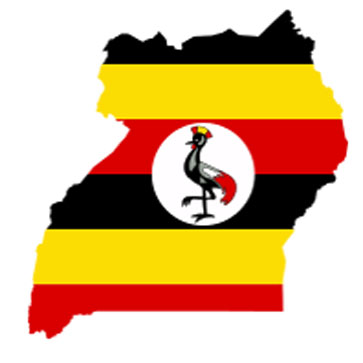
Tanzania
In March 2023, Tanzania hosted the first E-Mobility Forum in Dar es Salaam, supporting sustainable and electric urban mobility within the country. Since the vehicle count in Tanzania has quadrupled, notably with two- and three-wheelers reaching 1.2 million in 2016 and the transport sector accounting as the second largest polluter within the country, the transition toward e-mobility holds huge potential to decrease carbon emissions. Surpassing 5,000 electric vehicles, Tanzania hosts more EVs than the entire East African region combined.
The Tanzanian market remains appealing due to its size and limited competition. With over two million vehicles and a handful of young companies vying to shift toward e-mobility, Tanzania presents an enticing landscape for growth.
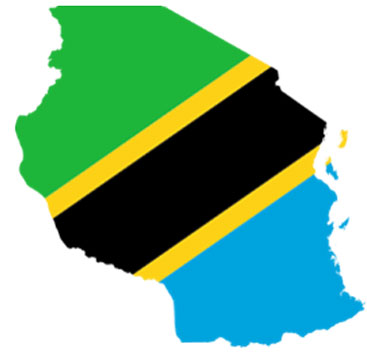
Our focus on e-mobility

E-Mobility “Made in Africa for Africa”
In partnership with social enterprises, local authorities, and international organizations, we promote the development of sustainable solutions and business models in the field of e-mobility in sub-Saharan Africa. Learn more about our approach and other projects.
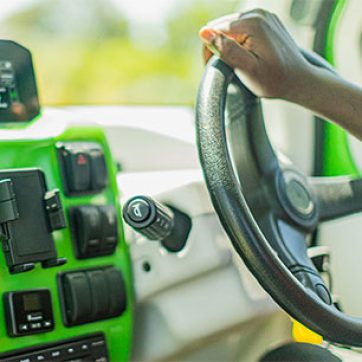
Piloting and Prepare to Scale E-Mobility in Kenya
As part of the German Climate Technology Initiative (DKTI), we are supporting the development of local e-mobility solutions in Kenya as part of our project “Piloting and Prepare to Scale E-Mobility in Kenya” together with GIZ.
Related content
- Sustainable business models with social impact – Our social entrepreneurship working area
- Sustainable mobility solutions in sub-Saharan Africa – Our commitment to e-mobility at a glance
- Call for research and development (R&D) in Kenia 2023
- Call for research and development (R&D) in Ghana and Uganda 2023 (completed)
Current calls

E-Mobility 4 Impact Call 2024
Looking for social entrepreneurial ideas from Ghana, Nigeria, Uganda and Tanzania.


